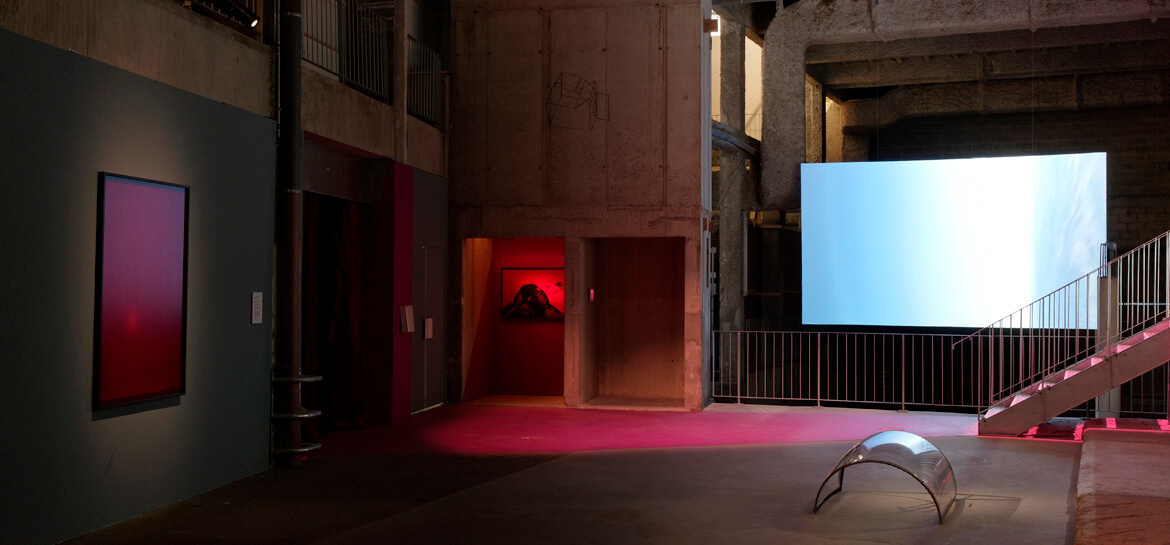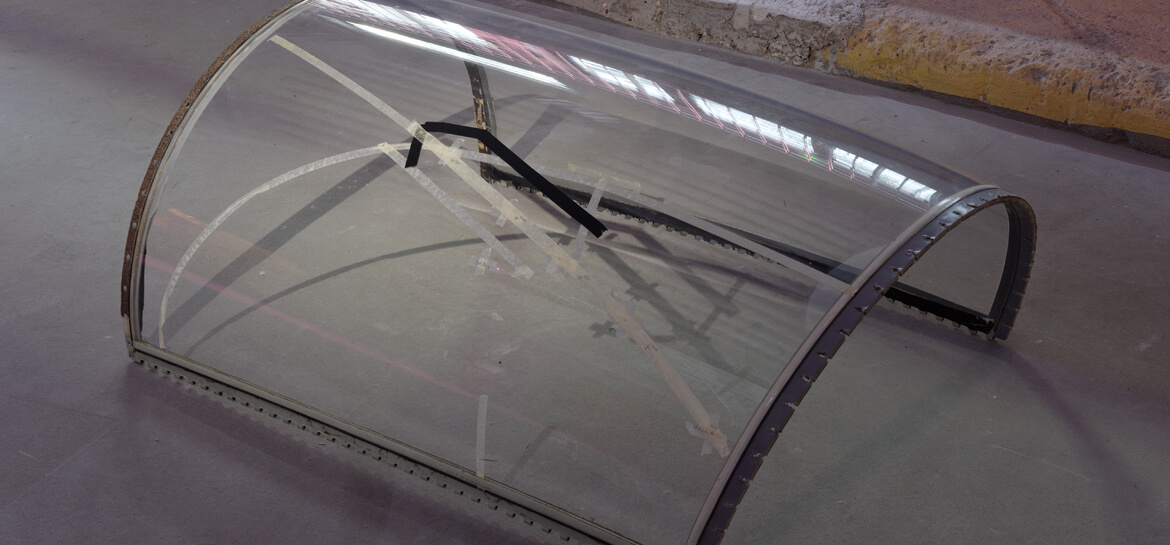
SEARCH THE ENTIRE SITE

Le Principe Galápagos
Between apparition and disappearance, an exhibition that examines the biotope of art’s relationship to the rest of the world, inspired by Darwin’s work on the Galapagos Archipelago.
A curatorial collective from Geneva, composed of Maxime Bondu, Gaël Grivet, Bénédicte Le Pimpec and Émile Ouroumov, invests Palais de Tokyo by scattering works throughout the building. The question of the biotope of art’s relationship to the rest of the world is framed by Darwin’s famous examination of the Galápagos archipelago. The observation of this natural milieu, considered as autonomous, allowed Darwin to formalize his theory of natural selection, which he then applied to the rest of the natural world. How does this pertain to the question of art?
In Le ParK, the novelist Bruce Bégout presents his personal interest for endemism (concept defined as the exclusive presence of a biological group in a specific locality), first experienced by Charles Darwin during his visit to the Galápagos Islands. Licht, a character of the novel, relies on this concept to describe the creative impulse behind his design of a gigantic park.
Though Darwin did not establish this principle while in the Galápagos, his journey to the archipelago played a crucial role in his understanding of natural selection. To this day, his studies of the finch’s beak, its shape analyzed according to the food supply of each island, remain well known. Darwin’s extraordinary powers of observation allowed the naturalist to confirm his hypothesis, then apply his conclusions to the entire natural world.
Thus Darwin and Bégout highlight two different aspects of endemism: on the one hand, that isolation leads to the appearance of unique entities that differ from those found elsewhere; on the other, that important conclusions pertaining to the entire world can be reached through an analysis of the isolated element.
Inscribed in the tension between these two poles, the curatorial project applies these questions to the biotope of art. Is art’s autonomy linked or inversely proportional to its ability to describe the world? How does art differ from other events or cultural objects?
The biology of evolution distinguishes between neoendemic species, whose application is tied to their geographical isolation and paleoendemic species that, because they have disappeared elsewhere, exist exclusively in a single spot. Similarly to these paleoendemic species, art could be described as a group of conventions specific to its field.
Thus “Le Principe Galápagos” [The Galápagos Principle] orients the very modalities of the exhibition, including works of art but also of statements, consumer products, diverse moments and objects that will confirm or disavow the principle’s validity. These different materializations are not meant to be apprehended simultaneously but will be presented throughout the summer, for variable durations ranging from a few hours to a few weeks.
The appearance of “Le Principe Galápagos” will be indicated throughout the Palais de Tokyo by a graphic identity created by the Geneva-based studio Schönborn Hernandez. An archive of documents, regularly updated, will be presented to the public, displayed in the museum’s lobby as well as on the project’s website: www.leprincipegalapagos.com. Upcoming appearances will be announced on both supports.
CURATORS
The artists and/or curators Maxime Bondu (b. 1985), Gaël Grivet (b. 1978), Bénédicte Le Pimpec (b. 1986) and Émile Ouroumov (b. 1979) have worked together on several projects, including “Première Chronique : Les dépossédés” (*/Duplex/*, Geneva, 2011) and “Données insuffisantes pour réponse significative” (Villa du Parc, Annemasse, 2012). Touching on such diverse fields as historiography, science and language, their respective research and practices dovetail seamlessly with “Le Principe Galápagos”. They live and work in Paris and Geneva.
WITH
Atlantic, Alain Bedos and Christian Moncel, Maxime Bondu, Simon Boudvin, René Daumal, Arnaud des Pallières, Simon Faithfull, Joseph Grigely, Gaël Grivet, Ceel Mogami de Haas and Vianney Fivel, Laurent Montaron, Uriel Orlow, Jean Painlevé, Ilya Prigogine, Principauté of Sealand, Superstudio, Christian Waldvogel
With the support of Groupe Atlantic, Pro Helvetia, Embassy of Foreign Artists (Geneva), of Fonds cantonal d’art contemporain, SCC, DIP, Etat de Genève and the Fluxus Fund

